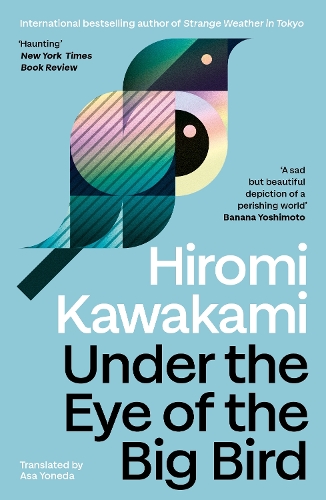The writing is poetic and concise, with well-developed characters that feel real and relatable.
Richard Bist praised the book's writing, noting its poetic and concise style. He found the characters to be well-developed and relatable, which added depth to the story. The reviewer appreciated the translation by Asa Yoneda, which they felt enhanced the overall reading experience. They also noted that the book's themes are thought-provoking, making it a memorable and engaging read.
Quick quotes
The writing itself is wonderful, thanks to a great translation by Asa Yoneda.
It's poetic, concise, each character feels real and relateable.
The book's themes are thought-provoking, making it a memorable and engaging read.
